#1 — Always with Thanksgiving
"Were not all ten cleansed? Where are the other nine?"
Jesus had moved along the border between Galilee and Samaria — a journey right in the middle of Jewish, Gentile, and Samaritan populations. Ten lepers had seen Jesus and stayed a long distance away from him as prescribed by the Torah. However, they cried out loudly, "Jesus, Master, have mercy on us" (Luke 17:13 ESV). As these ten followed Jesus' command to show themselves to the priests, they were healed on their way. Only one of them, the lone Samaritan, turned back and thanked Jesus before going to the priests. Jesus was clearly disappointed in the other nine.
As I think about our Thanksgiving season in the United States, this story convicts me. It also makes me wonder. I wonder if our "Master" ever wants to say to us, "Where are the other fifty-one?"
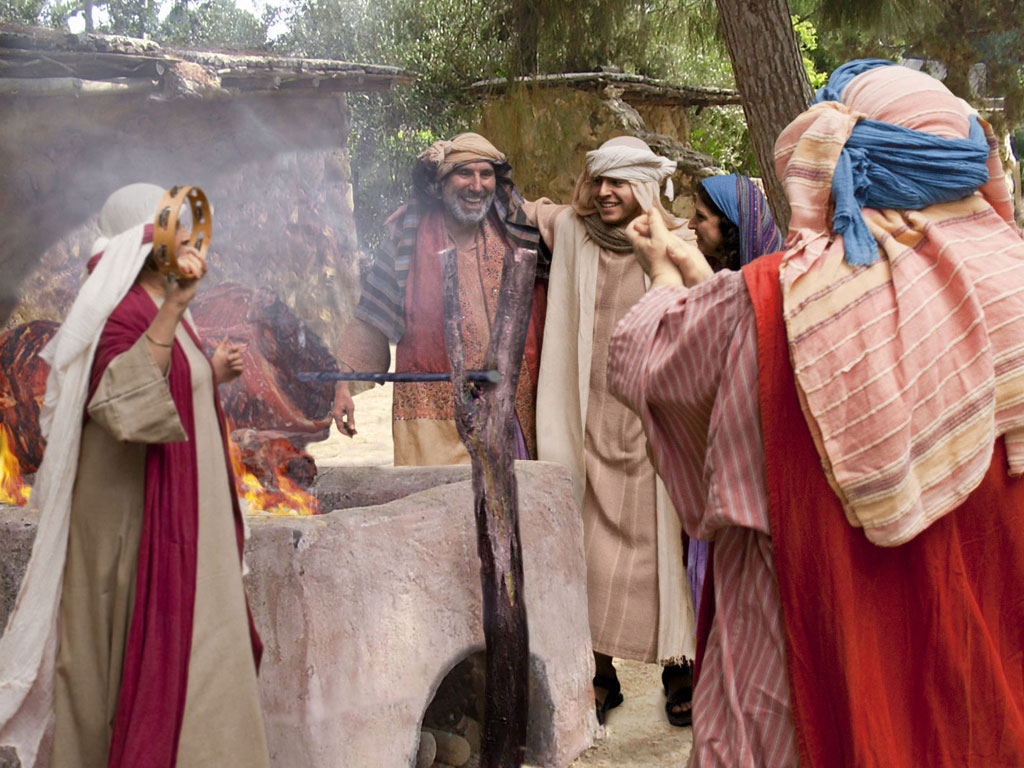 Surely we have more than one week a year to be thankful! So how are we at giving thanks with our other fifty-one weeks of the year? And if I'm honest, I'm not all that certain we even give the Lord the full one week of Thanksgiving with all our traveling stress, food preparation stress, and all our "Black Friday" stress and football marathons. (We can even start "Black Friday" now on Thursday afternoon if we don't want to watch football!)
Surely we have more than one week a year to be thankful! So how are we at giving thanks with our other fifty-one weeks of the year? And if I'm honest, I'm not all that certain we even give the Lord the full one week of Thanksgiving with all our traveling stress, food preparation stress, and all our "Black Friday" stress and football marathons. (We can even start "Black Friday" now on Thursday afternoon if we don't want to watch football!)
Why is it so hard for us to be thankful — not token thankful, but truly thankful?
At first glance you may think I am being overly hard on us. So all I ask you to do is listen to our prayers. All too often, I fear that we sound a whole lot like Bob from the movie "What about Bob?":
Gimme, gimme, gimme, I need, I need, gimme, gimme, please...!
As James puts it:
You desire and do not have... You do not have, because you do not ask. You ask and do not receive, because you ask wrongly, to spend it on your passions (James 4:2-3 ESV).
Gimme, gimme, gimme, I need, I need, gimme, gimme, please...!
Over the years of my ministry, I've found a special blessing working with new disciples of Jesus: they know how to pray and give thanks to the Lord for his many incredible blessings. Yet when I work with long-time Christians and I challenge them to pray and not ask for anything, invariably most of them don't know what to say after the perfunctory, "Thank you Father for your many blessings." Through the years, many of the prayers that we've heard in public as well as our own personal prayers usually shift into high and earnest focus when we begin asking the Father for what we think we need.
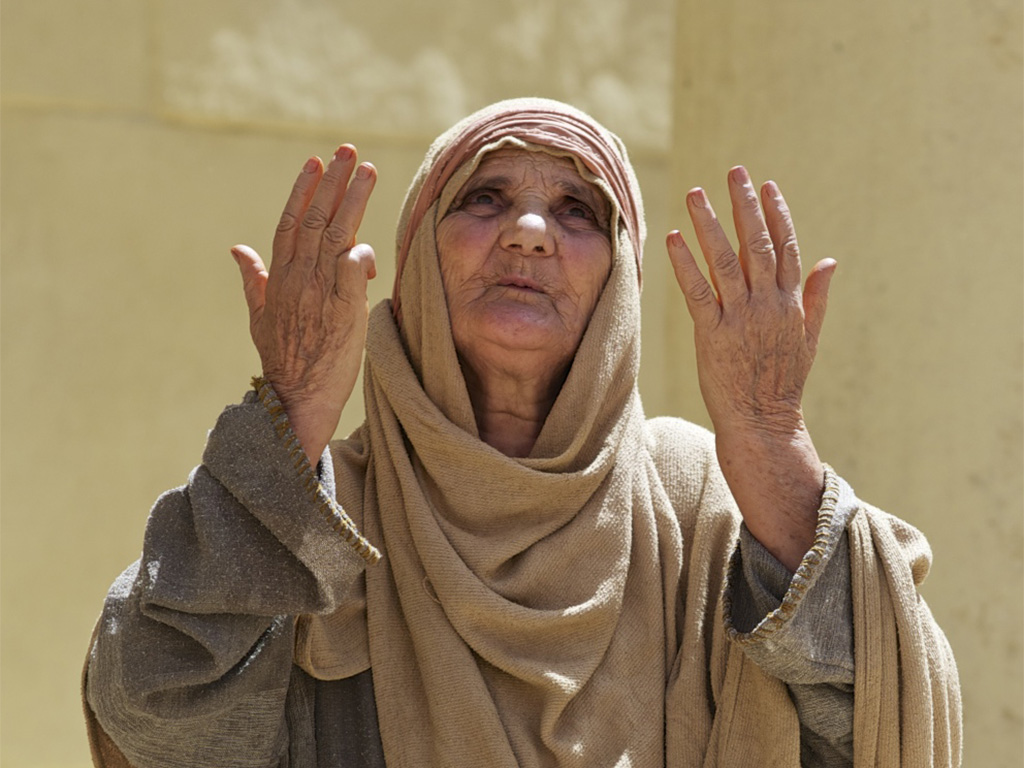 Clearly there is nothing wrong with asking the Father to help us with our needs and for the needs of others. Yet if the Lord's Prayer teaches us anything, it teaches us that not only does this come second to acknowledging the Father's greatness and praying for the Father's kingdom to come and will to be done. If we add on the ending doxology of praise, the small and simple ask for bread and the request for forgiveness as we commit to forgiving and the earnest request for deliverance from the evil one's temptations are really a layer of peanut butter, jelly, and banana between two plump and moist slices of the bread of praise.
Clearly there is nothing wrong with asking the Father to help us with our needs and for the needs of others. Yet if the Lord's Prayer teaches us anything, it teaches us that not only does this come second to acknowledging the Father's greatness and praying for the Father's kingdom to come and will to be done. If we add on the ending doxology of praise, the small and simple ask for bread and the request for forgiveness as we commit to forgiving and the earnest request for deliverance from the evil one's temptations are really a layer of peanut butter, jelly, and banana between two plump and moist slices of the bread of praise.
Our Father in heaven,
hallowed be your name.Your kingdom come,
your will be done,
on earth as it is in heaven.
Give us this day our daily bread,
and forgive us our debts,
as we also have forgiven our debtors.And lead us not into temptation,
but deliver us from evil.For yours is the kingdom and the power and the glory, forever. Amen (Matthew 6:9-13)
Paul, as he is teaching and reminding new believers to pray, repeatedly reminds them to offer thanksgiving with all of their prayers. This isn't hard for Paul to ask, because he so easily breaks out into thanksgiving in his own prayers and writing — just do a search on "giving thanks" and "thanks" and "thanksgiving" in the writings of Paul and I believe you will be surprised! (Here are just a few examples of Paul's words from the letters of Ephesians, Philippians and Colossians, the last verse being the theme of this short series during November!*)
I have not stopped giving thanks for you, remembering you in my prayers (Ephesians 1:16).
Nor should there be obscenity, foolish talk or coarse joking, which are out of place, but rather thanksgiving (Ephesians 5:4).
Sing and make music from your heart to the Lord, always giving thanks to God the Father for everything, in the name of our Lord Jesus Christ (Ephesians 5:19-20).
Paul demonstrated in his letters that giving thanks was the natural overflow of a life touched by the grace of Jesus.I thank my God every time I remember you. In all my prayers for all of you, I always pray with joy (Philippians 1:3-4).
Do not be anxious about anything, but in every situation, by prayer and petition, with thanksgiving, present your requests to God (Philippians 4:6).
We always thank God, the Father of our Lord Jesus Christ, when we pray for you... (Colossians 1:3).
So then, just as you received Christ Jesus as Lord, continue to live your lives in him, rooted and built up in him, strengthened in the faith as you were taught, and overflowing with thankfulness (Colossians 2:6-7).
Let the peace of Christ rule in your hearts, since as members of one body you were called to peace. And be thankful (Colossians 3:15).
And whatever you do, whether in word or deed, do it all in the name of the Lord Jesus, giving thanks to God the Father through him (Colossians 3:17).
Devote yourselves to prayer, being watchful and thankful (Colossians 4:2)
Paul not only taught new disciples to give thanks, he easily slipped into thanksgiving in his letters and in his life. Maybe it was his training as a rabbi memorizing the Psalms that made thanksgiving such a natural part of his vocabulary? Or, maybe it was his new found joy at salvation by grace through faith? The point? Paul demonstrated in his letters that giving thanks was the natural overflow of a life touched by the grace of Jesus.
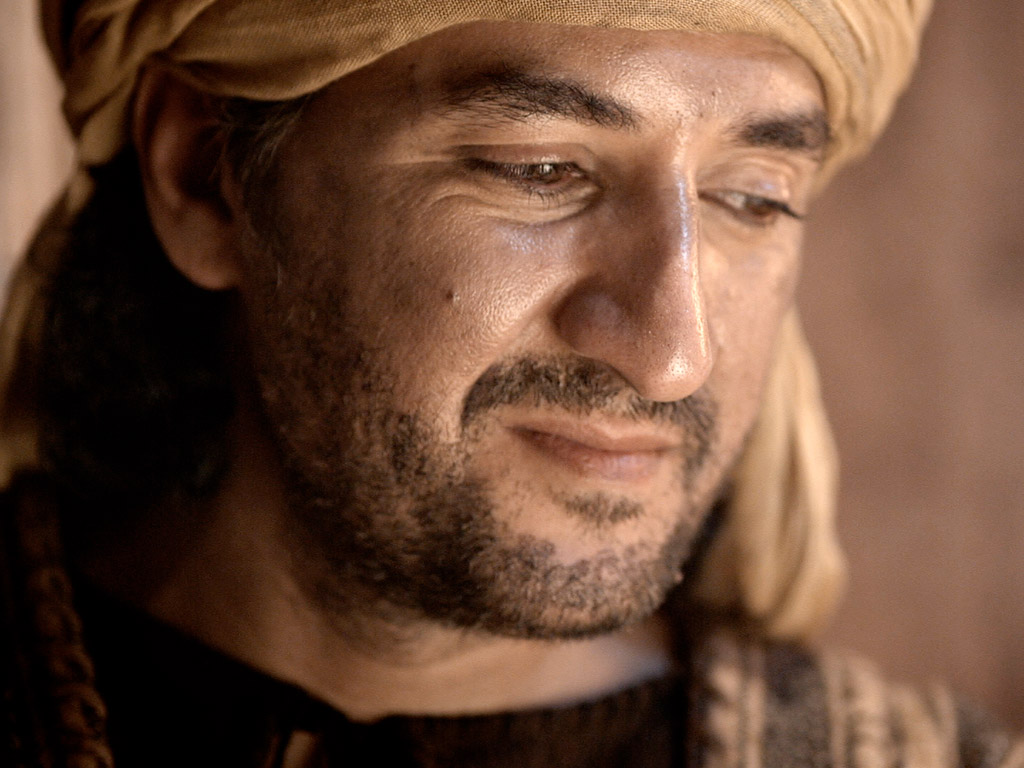 Paul demonstrated that this thanksgiving — this deep, heartfelt realization of being blessed by God eternally in Jesus and being filled with the Holy Spirit — was crucial for Jesus' followers. He emphasized it as he taught them to overcome temptation and trial, to resist false teaching and heresy, to worship acceptably, to pray effectively, and to be open and ready for God's transforming power in our lives. Yes, thanksgiving is the platform Paul used to leverage Christians to change in the direction of God's will and to hang onto their hope in sharing in Jesus' glory!
Paul demonstrated that this thanksgiving — this deep, heartfelt realization of being blessed by God eternally in Jesus and being filled with the Holy Spirit — was crucial for Jesus' followers. He emphasized it as he taught them to overcome temptation and trial, to resist false teaching and heresy, to worship acceptably, to pray effectively, and to be open and ready for God's transforming power in our lives. Yes, thanksgiving is the platform Paul used to leverage Christians to change in the direction of God's will and to hang onto their hope in sharing in Jesus' glory!
So whatever circumstances we find ourselves in our journey with Jesus, remember to give thanks — thanks for what God has promised us, for what God is doing with us, for what God is making of us, what God will ultimately do for us, what God means to us, and most of all, give thanks that God is God and good and gracious... and he will always be these even in the capriciousness and pain and separation mortality brings to our world.
We can do more than just give thanks one week a year; we can let thanksgiving flow through the other fifty-one weeks of our year. And if we, or our churches, or our families find ourselves in the vortex of change, challenge, or crisis, let's especially remember Paul's example and his exhortation: "Devote yourselves to prayer, being watchful and thankful."
May our lives and worship always be punctuated with those final two words: ...and thankful!
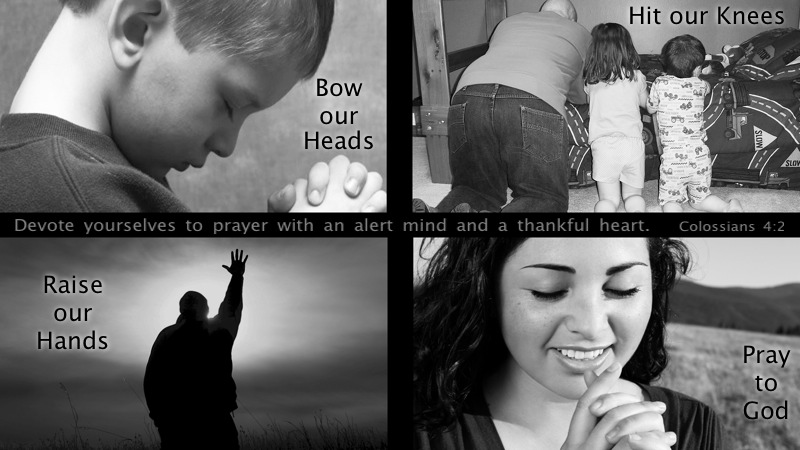
This is the first in a series of four messages all entitled ...and thankful!
Special thanks to Free Bible Images for the graphics in this article.

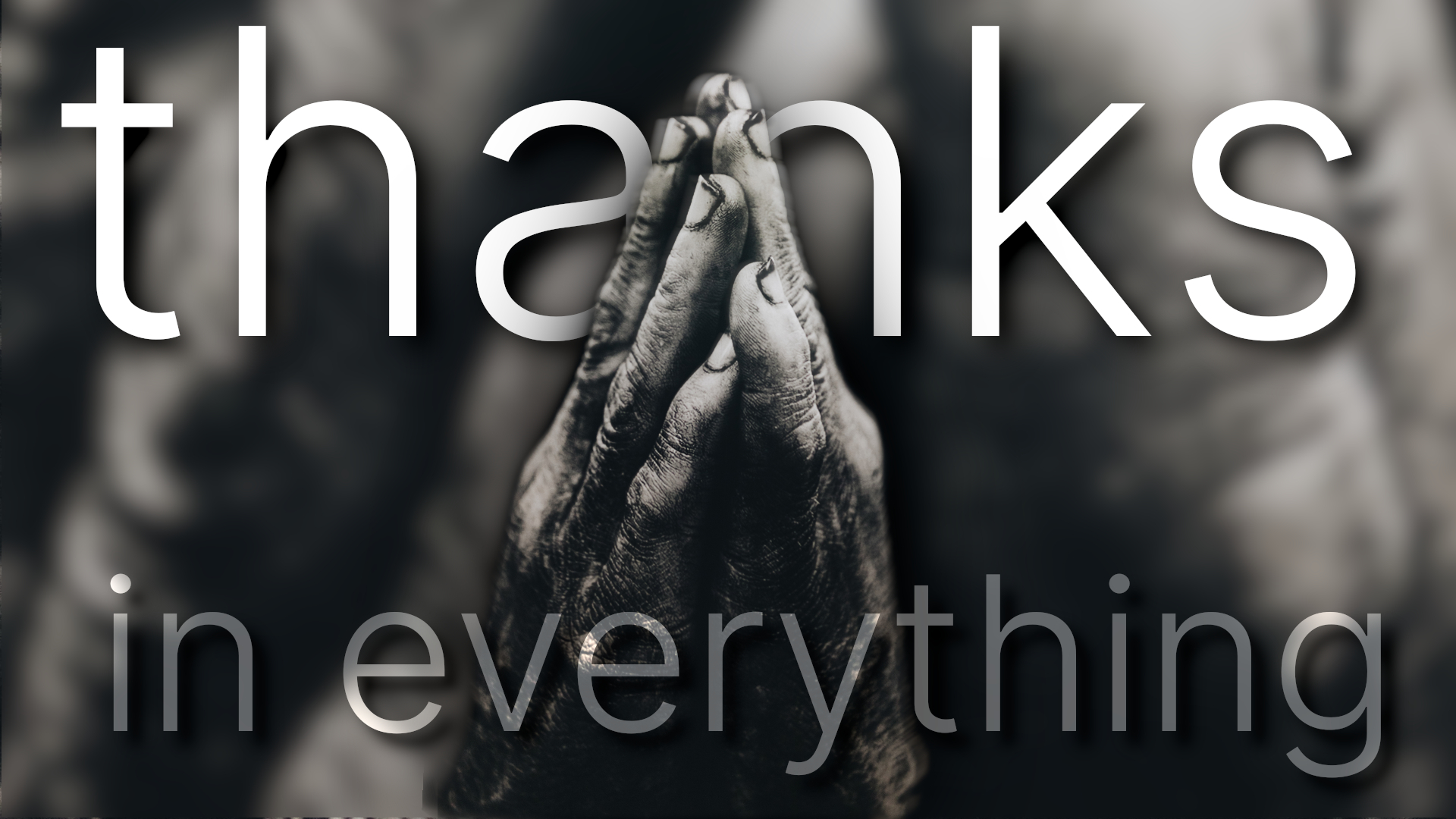








Reader Comments
Archived Facebook Comments